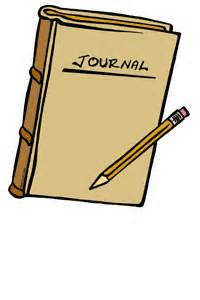The Journalers Journey includes 30 lessons, which allow you to grow your writing skills. When you are stuck for a way to find words, look for the above symbol for prompts. Writing tools may also be found by filtering under the “ABC Documents” category, the “Journaler’s Journey” category or by clicking on the tag “writing”.
What is Journaling?
A journal is simply a record, that includes reflections, emotions, and musings of your daily activities. It is a way to share the stories which exist in your everyday life. It does not need to be a written document.
It is different from a diary in that it does not need to be chronological. It is also different from the writing done in school, there are no rules, no right or wrong. A journal is simply a collection of personal thoughts and observations. Sharing the contents or keeping them completely private, is up to you.
Ten Tips For Beginning Your Journal
1) When documenting your own personal journey, choose how you will record the details. Use one tip, or use them all. Here are some ideas:
- Choose what to write on. Journals can be hardbound, hand sewn, stamped, made of postcards, or written on the side of a decorated cereal box. Even the monthly squares of a calendar can be used to jot down details of the day. All you really need to create a traditional journal, is some form of paper to document on.
- Use a computer program and/or a blog to record your thoughts.
- Communicate with letters and/or emails.
- Create scrapbook albums by combining photos, stories and memorabilia. Begin each page with a title, it defines your thoughts. Add pictures and/or memorabilia. Decorate the pages.
- Use a variety of media sources such as tape recorders, video recorders and/or digital video clips on the computer.
2) Make it personal, after all it is your story to tell. If someone disagrees, encourage them to write their own version.
3) Somewhere on each entry, write the full date and time of day. Add a description of your mood. This becomes important if you want to reflect on the days, or look up a specific entry. As your writing skills strengthen, this information can be incorporated into the body of the written story.
4) Choose your writing instrument. Do you like crayons, pencils or colored pens? Would you prefer a fountain pen or a scented one? Do you have a favorite writing tool, or do you want to start each journal with a new one? The answer is the same for each of these questions, you get to decide what to use!
5) Keep it simple-put some words on a page, after all, that is all journaling really is!
6) Find a place to write. Do you prefer the white noise of a coffee shop, or a completely silent space?
7) Dedicate time to write. Like anything, the more you do of it, the easier and more interesting it will become. If daily writing is difficult, then just do it as often as possible.
8) Write whatever comes to mind. There are no rules. Banish the grammar and spelling police. It doesn’t really matter if you make a mistake, nobody is going to punish you. Perfectionism is what keeps us stuck.
9) Write about what you know. Think of your journal as an old friend who has stopped by for coffee. What would you talk about? If you can’t think of anything to say, describe the room you are sitting in. Or, ask yourself questions like “What’s New? What Happened Today?” Or, choose a quote or word from the dictionary and expand on why it inspired you or why you chose it. Just write! Like any skill, the more you do it, the better your writing will become.
10) Above all, enjoy yourself!
